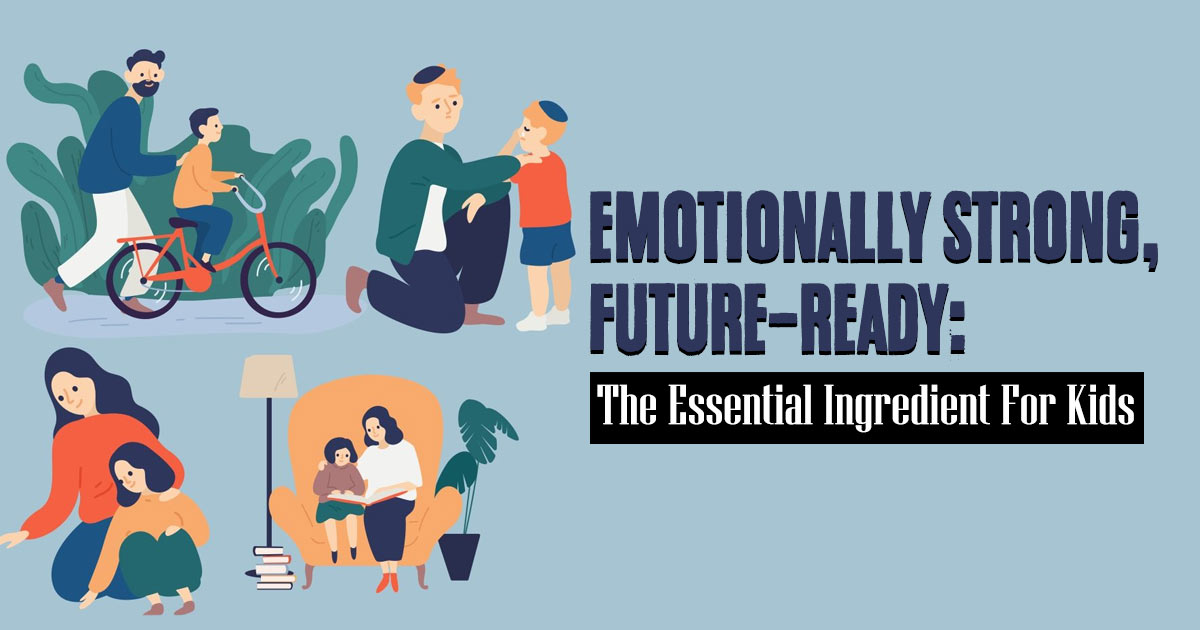In today’s rapidly changing world, the importance of raising emotionally healthy and balanced children cannot be overstated. Emotional health is a crucial aspect of a child’s overall well-being, as it influences their cognitive development, social interactions, and overall happiness.
This essay explores the significance of an emotionally healthy child, identifies signs of emotional well-being, and provides insights into how parents and educators can foster emotional health in children both at home and in school.
Importance Of An Emotionally Healthy Child
An emotionally healthy child is one who possesses the ability to understand, express, and manage their emotions effectively. Emotional health is vital because it directly impacts a child’s overall development and quality of life.
Here are some key reasons why nurturing emotional health in children is of paramount importance:
1. Positive Relationships:
Emotionally healthy children are more likely to develop positive and lasting relationships with family members, peers, and authority figures. They are better equipped to communicate their feelings, empathize with others, and resolve conflicts constructively.
2. Academic Success:
Emotional well-being is closely linked to academic achievement. Children who are emotionally stable and resilient tend to perform better in school, as they can manage stress, focus on tasks, and adapt to challenges effectively.
3. Self-Esteem And Confidence:
Emotional health plays a crucial role in developing a child’s self-esteem and self-confidence. Children who feel secure in their emotions are more likely to believe in their abilities and pursue their goals with determination.
4. Mental Health:
Emotional health is closely tied to mental health. Children who learn to manage their emotions are less susceptible to mental health issues such as anxiety and depression, which are increasingly prevalent among young people today.
5. Behavioral Regulation:
Emotionally healthy children are better equipped to regulate their behavior and make responsible choices. They are less prone to impulsive actions and are more likely to develop self-control and resilience.
Signs Of An Emotionally Healthy Child
Recognizing the signs of emotional health in children is crucial for parents and educators. These signs can serve as indicators of a child’s well-being and can help identify areas where support and guidance may be needed.
Here are some common signs of an emotionally healthy child:
- Emotionally healthy children openly express a wide range of emotions, including joy, sadness, anger, and fear, without suppressing them.
- They demonstrate empathy and compassion towards others, understanding and relating to their peers’ feelings and experiences, showing kindness and support.
- These children possess strong communication skills, allowing them to express their thoughts and emotions clearly and respectfully, while also actively listening and engaging in meaningful conversations.
- They exhibit resilience in the face of adversity, bouncing back from setbacks, learning from their mistakes, and adapting to challenging situations.
- Emotionally healthy children have a good understanding of their own emotions, identifying triggers and coping strategies, which aids them in effectively managing their emotions.
- They maintain a positive self-image and a healthy level of self-esteem, believing in their abilities and possessing a strong sense of self-worth.
- They form and sustain healthy relationships with peers and adults, demonstrating trust, cooperation, and mutual respect in their interactions.
How To Raise An Emotionally Healthy Child At Home
Raising an emotionally healthy child at home is a profound responsibility, as it lays the foundation for their well-being throughout life. Create a safe and judgment-free space for your child to openly discuss their emotions. Listen actively and validate their feelings, fostering emotional intelligence by helping them recognize and label their emotions.
Model healthy emotional regulation and provide guidance on coping with stress and disappointment constructively. Emphasize the value of effort over outcomes, teaching them to view failures as opportunities for growth. Additionally, teach conflict resolution skills like active listening and empathy, encouraging peaceful resolutions to conflicts with peers and siblings.
Dedicate quality time to engaging in your child’s preferred activities to strengthen emotional bonds and facilitate open communication. Simultaneously, be mindful of screen time, setting clear limits to prevent its adverse effects on emotional health. Encourage physical activity, outdoor play, and face-to-face interactions as healthier alternatives, promoting their overall emotional well-being.
How To Raise An Emotionally Healthy Child At School
Consider the following tips on how to raise an emotionally healthy child at school:
1. Emotional Education:
Incorporate emotional education into the school curriculum. Teach children about emotions, empathy, and effective communication through age-appropriate lessons and activities.
2. Bullying Prevention:
Implement anti-bullying programs and policies to create a safe and inclusive school environment. Encourage students to report bullying and promote a culture of kindness and respect.
3. Counseling Services:
Provide access to counseling services within the school. Trained counselors can support students in managing their emotions, resolving conflicts, and coping with stress.
4. Peer Support Groups:
Create peer support groups or mentoring programs where older students can help younger ones navigate social and emotional challenges.
5. Conflict Resolution Training:
Teach students conflict resolution skills, including negotiation, compromise, and active listening. These skills are valuable for building positive relationships.
6. Promote Inclusivity:
Foster an inclusive school culture that celebrates diversity and encourages students to embrace differences. Teach the importance of respecting and valuing each other’s emotions and perspectives.
7. Encourage Extracurricular Activities:
Offer a variety of extracurricular activities that allow students to explore their interests and passions. These activities can boost self-esteem and provide a sense of belonging.
Raising emotionally healthy and balanced children is a shared responsibility that involves both parents and educators. Emotionally healthy children are better equipped to navigate life’s challenges, build strong relationships, and achieve their full potential. By creating supportive environments at home and in school, we can empower children to develop emotional intelligence, resilience, and a positive self-image, setting them on a path toward a bright and fulfilling future.








